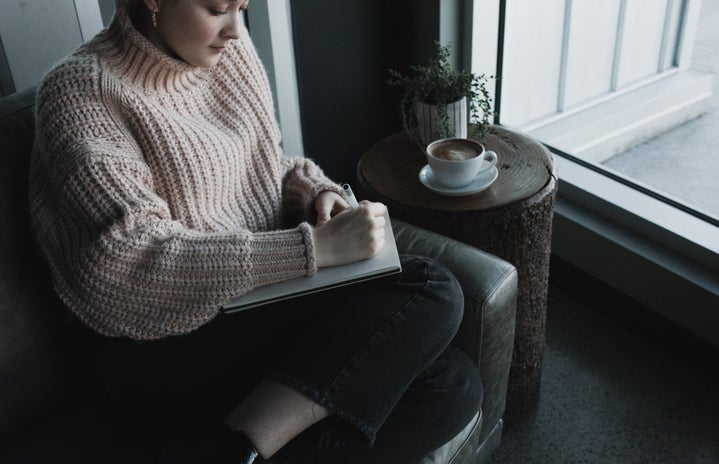If you’re someone who struggles often with anxiety like I do, you’ll probably know from personal experience that it can be a challenge to live a peaceful life at times. With the constant feeling of doom hanging over your head it can be extremely difficult to live in the moment and be present. Yes, it’s a fact that anxiety is something that isn’t going to permanently disappear from your life for good, but there are ways you can manage it. You don’t have to let anxiety take over your life. You have the power to not let it own you, and here are three ways you can better cope.
JOURNALING
Speaking from personal experience, I believe that journaling is a highly effective way of coping with anxiety. Simply just writing down an anxious thought and reading it written down on paper helps significantly. This is because you’ll be better able to understand the root of what you’re feeling and also realize that not every anxious thought you think makes sense. For example, just because you’re worried you’ll fail a semester at school or get a life-threatening disease doesn’t mean it’s going to happen. Journaling can be a great way to interpret whether or not there’s actual evidence that what we’re worried will happen has a likelihood of coming true. Also, getting all of your thoughts out on paper gives you an opportunity to pause and reflect on why you’re feeling the way you feel and why you have certain anxious thoughts. Personally, journaling has helped me realize that my anxious thoughts tend to have a pattern. So, what does your anxious thought pattern look like? Start writing to find out!
MINDFULNESS
When most people think of mindfulness, they tend to picture someone sitting cross legged on a yoga mat meditating. Regardless of what mindfulness may look like to you, mindfulness is really just taking the time to be more aware of your thoughts and be in the present moment. For example, when I practice mindfulness, I like to listen to relaxing music and practice breathing. Once I’m more relaxed I will acknowledge any thoughts or emotions I may be experiencing and will simply let them drift away. The act of just noticing your thoughts without attaching any emotion to them can be a beneficial way of reducing symptoms of anxiety. Also, the more you practice mindfulness the easier it will become and it will have a stronger effect each time.
MAKE TIME FOR SELF-CARE
If you’re a college student like me, you know that finding the time to rest and relax can be incredibly challenging at times. However, if you don’t take a breather every now and then, you are going to feel burnt out, which leads to more anxiety. When you’re feeling intense amounts of anxiety, it can be extremely difficult to perform well in school. Now that I’ve realized this, I’ve made it a priority to make time every night to do something nice for myself. I promise that you’ll thank yourself later if you prioritize self-care as well. Self-care isn’t just repeating affirmations and meditation, although those are great ways to implement self-care into your everyday routine. But self-care can be something as simple as taking a hot shower or watching an episode of your favorite show. Or if you’re really feeling it, sign yourself up for a workout class you’ve been wanting to try out, but have been putting off. Or start a new hobby that you can use as an outlet when you start to feel the anxiety setting in. Self-care can be anything that you love to do. It’s all about the intention behind it.


